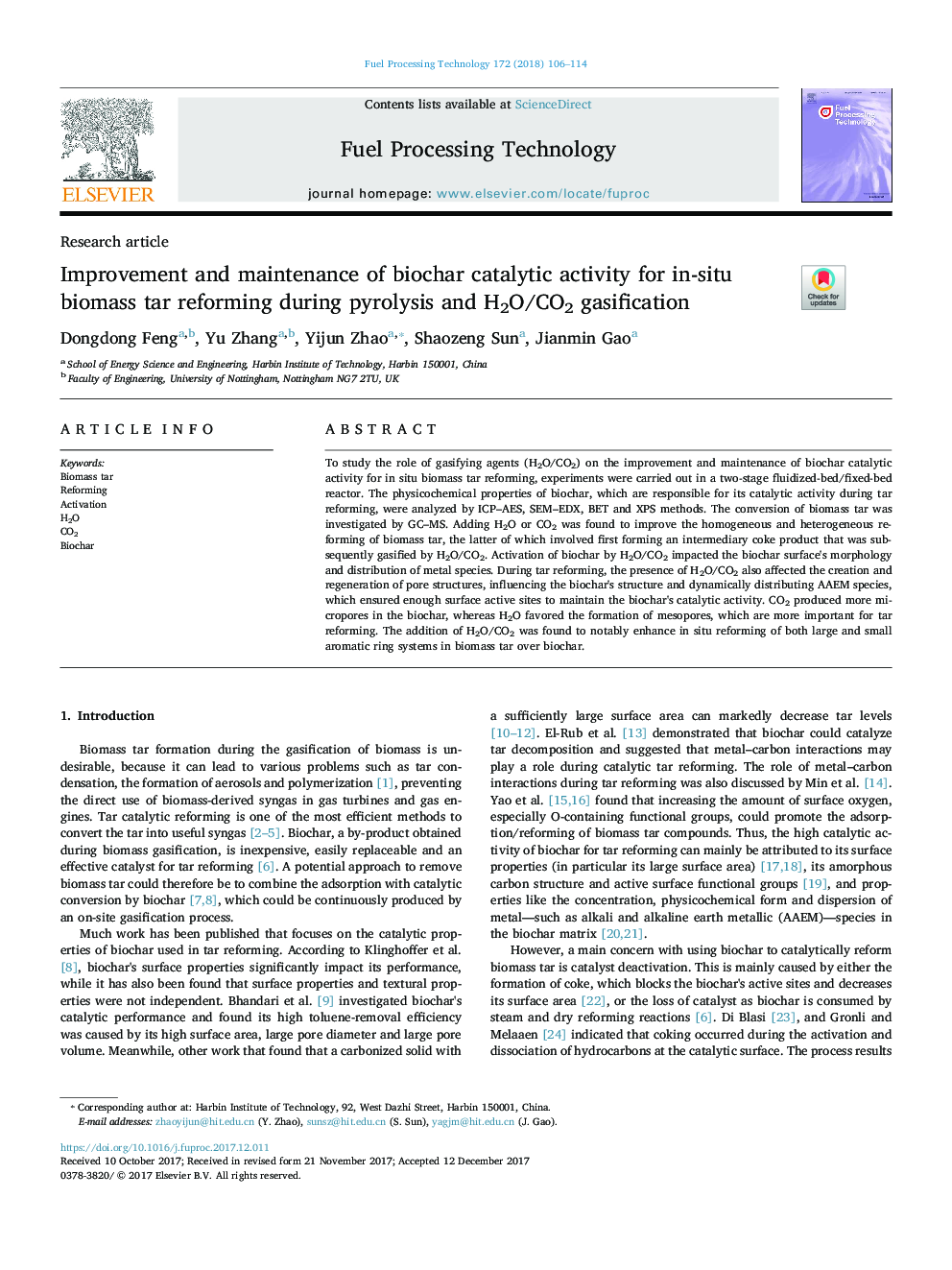| Article ID | Journal | Published Year | Pages | File Type |
|---|---|---|---|---|
| 6656475 | Fuel Processing Technology | 2018 | 9 Pages |
Abstract
To study the role of gasifying agents (H2O/CO2) on the improvement and maintenance of biochar catalytic activity for in situ biomass tar reforming, experiments were carried out in a two-stage fluidized-bed/fixed-bed reactor. The physicochemical properties of biochar, which are responsible for its catalytic activity during tar reforming, were analyzed by ICP-AES, SEM-EDX, BET and XPS methods. The conversion of biomass tar was investigated by GC-MS. Adding H2O or CO2 was found to improve the homogeneous and heterogeneous reforming of biomass tar, the latter of which involved first forming an intermediary coke product that was subsequently gasified by H2O/CO2. Activation of biochar by H2O/CO2 impacted the biochar surface's morphology and distribution of metal species. During tar reforming, the presence of H2O/CO2 also affected the creation and regeneration of pore structures, influencing the biochar's structure and dynamically distributing AAEM species, which ensured enough surface active sites to maintain the biochar's catalytic activity. CO2 produced more micropores in the biochar, whereas H2O favored the formation of mesopores, which are more important for tar reforming. The addition of H2O/CO2 was found to notably enhance in situ reforming of both large and small aromatic ring systems in biomass tar over biochar.
Related Topics
Physical Sciences and Engineering
Chemical Engineering
Chemical Engineering (General)
Authors
Dongdong Feng, Yu Zhang, Yijun Zhao, Shaozeng Sun, Jianmin Gao,
